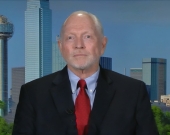Dr. Boaz Atzili to Gulan: there is no viable alternative to the existing international order, but the order can be improved

Dr. Boaz Atzili is a political scientist who researches and teaches international politics. His interest is in international security with an emphasis on the politics of borders, borderlands and territoriality, Asymmetric deterrence, and the international aspects of state weakness. He has conducted research on the Middle East, South Asia, Europe, Africa, and Latin America.
Atzili teaches courses include "Territorial Conflicts," "International Relation Theory," "Schools of Thought in International Relations," "Security and Insecurity in a Global World," "Dynamics of International (in)Security," "Weak States and War," and "Arab-Israeli relations."
Atzili's book publications include Triadic Deterrence: Israel, Arab States, and Non-State Actors (2018, Columbia University Press, with Wendy Pearlman), Territorial Designs and International Politics: Inside-out and Outside-In (Routledge, 2017, edited with Burak kadercan), and Good Fences Bad Neighbors: Border Fixity and International Conflict (University of Chicago Press, 2012). He published articles in venues including International Security, International Affairs, Security Studies, Studies in Conflict and Terrorism, International Studies Review, and Territory, Politics, Governance. In an interview he answered our questions like the following.
Gulan: As a specialist in global politics and international relations, how do you sum up the current global situation in light of the protracted conflict Russia and Ukraine and growing strain between USA and China, do you believe that the immediate outlook remains bleak?
Dr. Boaz Atzili: Yes, at least in the short term the outlook does remain kind of bleak. The fact that there is a conflict is not new, obviously there is conflict in some part of the world, sometimes it is more severe and sometimes less. And this period is especially tense, and Ukraine is especially important because it involves great powers, like Russia, which challenges the international order very clearly. With regard to the tension between USA and China, there is definitely a potential for escalation, but I don’t think it would necessarily escalate. We know that when there is one power rises and another power falls in relative terms, these tend to be dangerous times. Dangerous for wars, and conflicts, because these are times where the rules of the games are questioned, reestablished and renegotiated. But we cannot be certain that it would lead to direct conflict between China and USA, because there are also significant reasons why it will not, particularly I can point to two important factors, one of them is that there is still a great deal of economic interdependence between USA and China, the trade between the two nations is very high, also the level of investment, so a major conflict will cause a major disruption for the economies of both countries, that is an important mitigating factor. The other factor is nuclear weapons; the fact that both of them have nuclear weapons and both have what is called “second strike capability,” to absorb the first strike and retaliate. This means that any conflict will be extremely costly, and both USA and China will take that into consideration.
Gulan: Referring back to what you said earlier regarding the issue of economic interdependency and its ability to deter the use of force, some were speculating that economic interconnectedness would prevent Russia from pursuing such a course of action prior to the Russian invasion and occupation of Ukraine. What do you think about that?
Dr. Boaz Atzili: I think economic interdependence is not enough in and of itself. It does not make war impossible, it makes war less likely, if the leaders are making rational decision more or less about engaging in war. Russia is much less dependent, and it is economy is fairly more autonomous from the world (in comparison to China for instance). Yes there is a trade, but most of what Russia trade is oil, and that is a very fungible commodity, it has been able to shift matter for its economy towards China and other countries, and there are other countries that have not cut their economic ties with Russia. Russia definitely has suffered from Western economic sanctions, but these sanctions did not completely cripple its economy. But I think the situation between USA and China is different, as their economic ties are much deeper, and they depend on each other in more complex ways. Because, it is not about single commodity like oil that one country sells it to the other, but there are whole manufacturing chains that might be disrupted, although both countries are trying to decouple their economies from each other and find alternative markets, and there is some moving away from this increasing interdependence.
Gulan: In addition to Russia-Ukraine war, there is a vicious and grinding war in the Middle East, so given these situations and wars, do you believe that they are the manifestations of ineffectiveness or the failure of what is called rules-based international order?
Dr. Boaz Atzili: Yes and no, the fact that these wars continue means that the rules-based international order is challenged, but international order is not always perfect, it is not always impartial, it is not like a state that ruled by hierarchy, it is an anarchical order in which some countries have more power than others, but no country has a hegemony. So, we certainly feel that this order is challenged, or maybe we have witnessed the weakness of the international order. I don’t know if failure would be the right way to put it. But the question is what is the alternative? Do we have a viable alternative for the existing internation order? We should imagine the alternative in terms of not only wars, but the economic order. If there were no World Bank to give loans to countries that cannot get loans from others, and no international Monetary Fund to save a country that is failing, and no trade institutions, like the World Trade Organization, what would that order be like? So, I don’t see an alternative that is better, that’s what I am trying to say. It is true that there are a lot of failures, of course it is an order that came from particular place and it is western biased, but regardless of where it came from, some ideas of this order are good ideas even if they are not implemented to the best of what we can as human beings. In other words, we should all strive to improve the international order, make it more equitable, and make it actually fulfill its stated principles. But cheering for the destruction of an international order when there is no better alternative in sight is irresponsible.















